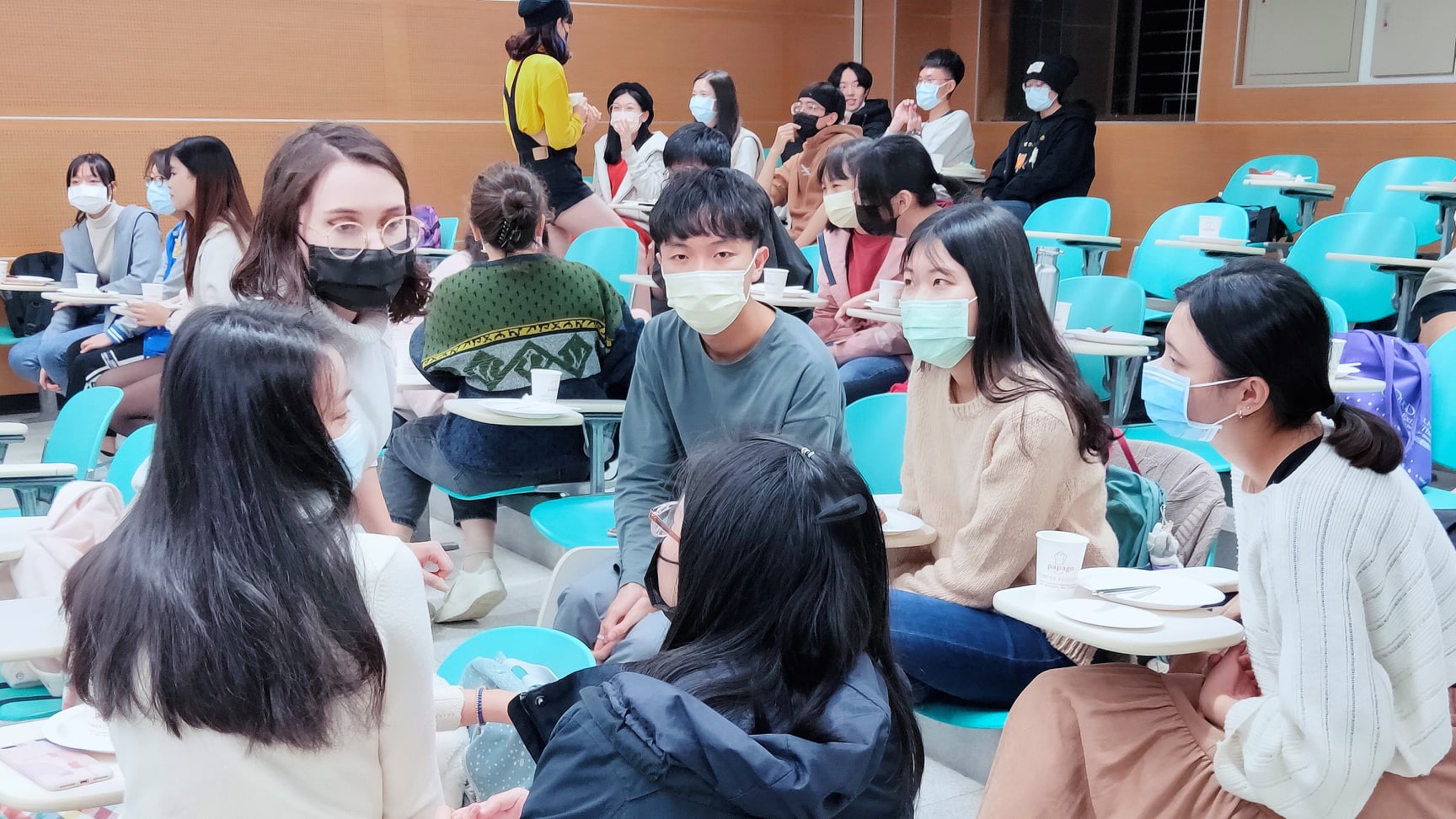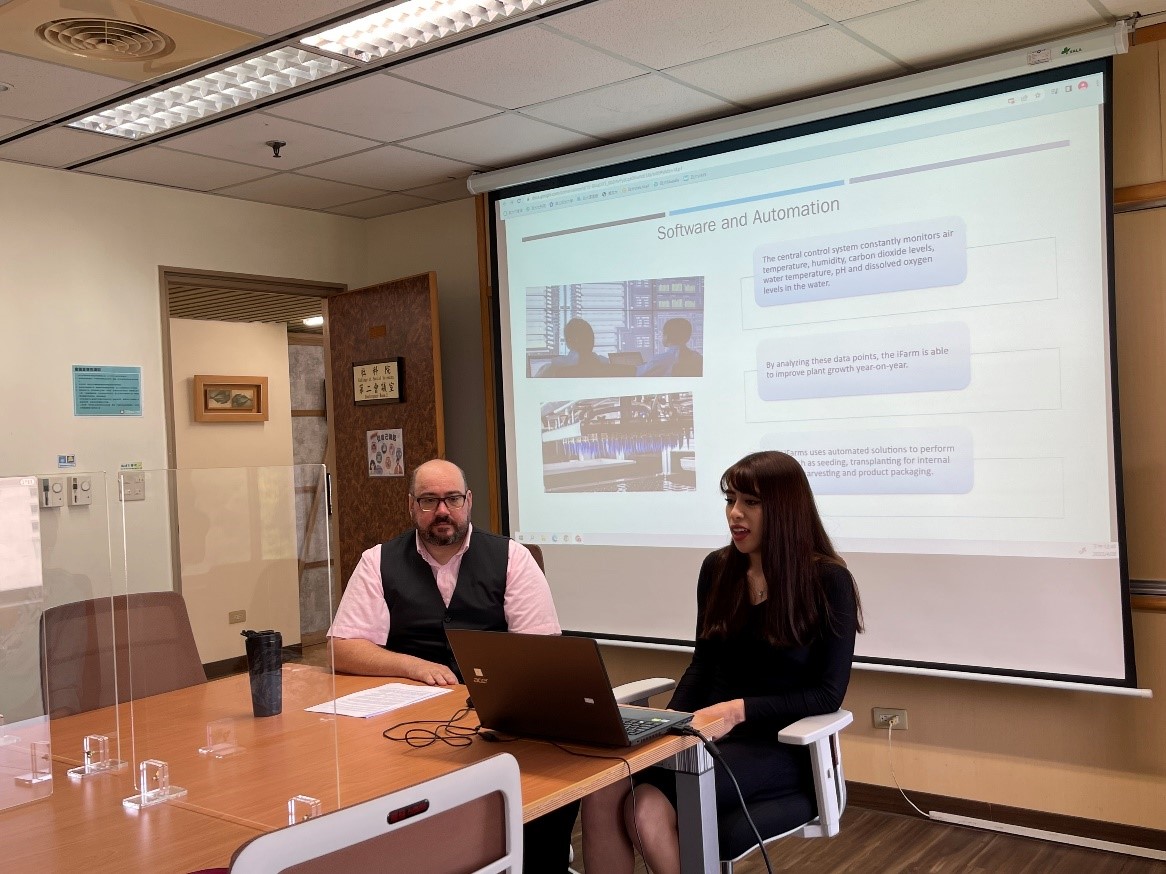Abstract
Introduction to the highlights of our college
Of all colleges at National Chengchi University, the College of Social Sciences has the greatest number of international students, and can boast a diverse background of its international students. It also has a complete system of international study programs. The curriculums cover various disciplines in the social sciences and cover a variety of social issues, providing students with a robust learning environment and study plan.
Currently, the number of English-taught courses offered by the college accounts for approximately 30% of the university’s total offering. In recent years, with the support of the Ministry of Education through the exchange fellowship system, foreign scholars have been invited to participate in short-term transnational research and teaching collaborations, and foreign faculty have been actively recruited to further enrich the English language opportunities at the College while also enhancing the depth and breadth of the curriculum.
Bringing together international faculty and students, the College serves as a gathering place for a wealth of experiences. Through cross-national and cross-divisional research and teaching collaborations, the College guides diverse professional groups to build a global bilingual education model.
An overview of the highlights of the College's executive achievements
The College places students at the center of its mission and includes its bilingual learning plan for its students in its effort to create a bilingual educational field through three factors: students, teachers, and environment. The International Program Office is responsible for promoting, connecting and coordinating these three main areas. The implementation results of the three points are described below:
Student
- Set up English proficiency training courses
Invite international students who have experience teaching English to serve as teaching assistants. Design various subject courses for domestic students with different English proficiency levels, introduce small class instruction, reinforce practical language use through an immersive English learning environment, and increase domestic students' confidence in using English. In addition, the college offers English tutoring support during office hours according to individual needs; 6 classes in the first semester of the 110th academic year with about 79 applicants; 7 classes in the second semester of the 110th academic year with about 81 applicants.
2. Set up the“International Family”
The “International Family” is comprised of a combination of local Taiwanese students of the ETP course of our College and the international students of the international programs. Activities and events including seminars and lectures are held both on and off campus to shorten the distance between domestic and international students. Students can also learn and communicate with each other in various fields during their free time. In the academic year 110, the following events were held: 1 international family friendship event, 1 indigenous culture event, 1 corporate visit, 2 "Career Talk" career lectures, and 3 essay writing workshops.
3. Provide English test and course rewards
In order to improve the motivation of domestic students to learn English, our school has introduced English test incentive programs to reward students who have achieved CEFR B2 level or higher in their English tests. The program was launched in the second semester of academic year 110, and a total of 111 people have received grants. Incentives are also available for taking English major courses, depending on the number of credits taken, for students of their own nationality who have taken more than 9 credits of English major courses in a single academic year or have cumulatively taken more than 16 credits of English major courses during the semester. Different levels of rewards, began in the second semester of academic year 110, and a total of 21 people received rewards.
Teacher
- Replenish the teaching staff of English major courses
In order to provide more opportunities for students to take courses, the College not only offers EMI courses in connection with other colleges, but also actively recruits full-time and part-time instructors to teach English. In the second semester of academic year 110, a total of 7 part-time English teachers were recruited from domestic and overseas research or practice. They lectured on subjects in the fields including politics, land administration, applied economics and social work, enriching and diversifying the College's EMI courses In addition, the recruitment of 1 full-time instructor (專任教師) and 1 dedicated instructor (專約教師) was completed in the second semester of academic year 110 and recruitment started in the first semester of academic year 111. Both instructors have the ability to teach in English. Bilingual support plan implementation was begun and EMI courses are offered in this College.
2. Enhanced teaching resources for EMI courses
Considering the fact that EMI course teachers have to bear a heavy burden in preparing lessons, grants for EMI course teaching assistants are provided to teachers in order to increase teachers' motivation to open EMI courses. Teachers may hire teaching assistants as needed to lighten the load of class preparation or to provide tutoring for students. A total of 36 courses were subsidized in the first semester of academic year 110 and a total of 47 courses were subsidized in semester two of academic year 110. In addition, EMI lecture subsidies were added to allow teachers to invite outside experts and scholars to lecture at the university, making course design more dynamic and varied. A total of 13 people were subsidized in the second semester of academic year 110.
3. Improve teachers' English teaching ability
In addition to encouraging our teachers to participate in EMI courses sponsored by the Ministry of Education or another school, our College will also hold an English teacher exchange seminar in the second semester of academic year 110. Prof. Yu-Hsuan Su from the Graduate Institution of Development Studies has given a lecture to encourage teachers to use more innovative and interesting methods of teaching English. Another TA workshop on teaching English was held under the guidance of Prof. Jack Wu from the Department of Finance, who led the TA group to share experiences and improve the English skills of the TA group. In addition, based on the three existing international study programs of our school, teachers with rich experience in international teacher-student exchange from different professional fields are invited to form the "International School Mentor Group" (國際院導師群) to promote the exchange of teachers’ international experience through various exchange activities and promote the "International Family"(國際家族).
Environment
- Adding online teaching equipment
Due to the impact of the Covid-19 epidemic, it is not possible to conduct substantial exchanges with foreign teaching and research institutions, but through the use of online learning devices, it is still possible to overcome geographic barriers and travel time constraints and invite foreign scholars or alumni to give special lectures or share professional experiences via video.
2. Revitalization of the English Exchange Center
The College is taking the opportunity to promote its bilingual program by revitalizing the original International Corner space, continuing the International Village concept from previous years, improving the space design, creating a more comfortable and friendly communication environment, and becoming a language center for domestic and international students. All of these improvements will provide a new hotspot for communication.

